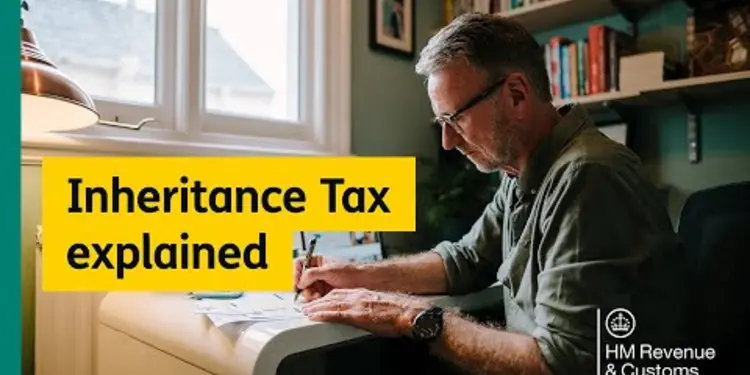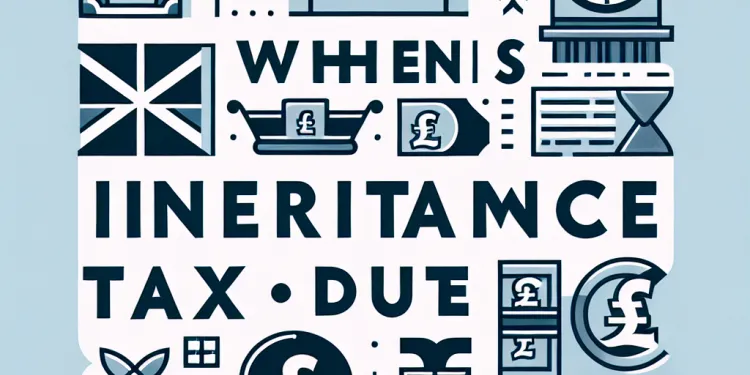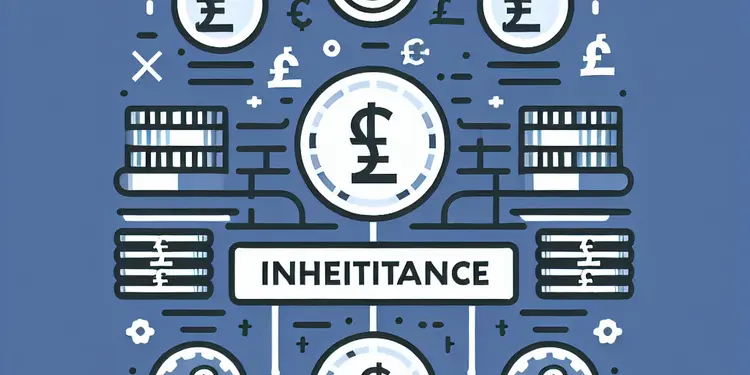
Find Help
More Items From Ergsy search
-

How does inheritance tax affect non-UK domiciled individuals?
Relevance: 100%
-

Does owning property abroad affect UK inheritance tax?
Relevance: 45%
-

Do spouses have to pay inheritance tax?
Relevance: 44%
-

What is inheritance tax in the UK?
Relevance: 42%
-

Who is responsible for paying Inheritance Tax?
Relevance: 40%
-

Who pays the inheritance tax?
Relevance: 38%
-

What is inheritance tax in the UK?
Relevance: 37%
-

Do I pay Inheritance Tax on a property I inherit?
Relevance: 36%
-

What is inheritance tax?
Relevance: 35%
-

What is Inheritance Tax?
Relevance: 34%
-

What is Inheritance Tax?
Relevance: 34%
-

When do I need to pay Inheritance Tax?
Relevance: 34%
-

Is there a difference between inheritance tax and estate tax?
Relevance: 34%
-

Are there any exemptions from inheritance tax?
Relevance: 34%
-

How is the Inheritance Tax bill calculated?
Relevance: 33%
-

When is inheritance tax due?
Relevance: 33%
-

Are there deductions available for inheritance tax?
Relevance: 33%
-

Are there tax-free thresholds for inheritance tax?
Relevance: 33%
-

Which countries impose inheritance tax?
Relevance: 33%
-

How is inheritance tax calculated?
Relevance: 33%
-

Can inheritance tax be deferred?
Relevance: 32%
-

What assets are subject to inheritance tax?
Relevance: 32%
-

Does the value of gifts affect Inheritance Tax?
Relevance: 32%
-

Is there any inheritance tax exemption for spouses or civil partners?
Relevance: 32%
-

When is inheritance tax due to be paid?
Relevance: 32%
-

Can gifting reduce future inheritance tax liabilities?
Relevance: 32%
-

Do unpaid tax debts affect Inheritance Tax calculations?
Relevance: 32%
-

Are there professional advisors for inheritance tax planning?
Relevance: 31%
-

Does inheritance tax vary by state or region?
Relevance: 31%
-

What is the process for paying inheritance tax?
Relevance: 31%
-

Can Inheritance Tax be paid in installments?
Relevance: 31%
-

Can an inheritance tax bill be challenged or appealed?
Relevance: 31%
-

Can Inheritance Tax be claimed back?
Relevance: 31%
-

Is it possible to reduce the Inheritance Tax bill?
Relevance: 31%
-

What is the seven-year rule relating to inheritance tax?
Relevance: 30%
-

What happens if inheritance tax is not paid?
Relevance: 30%
-

What happens if Inheritance Tax is not paid on time?
Relevance: 30%
-

What is the '7-year rule' in Inheritance Tax?
Relevance: 30%
-

Do all beneficiaries pay the same inheritance tax rate?
Relevance: 30%
-

How does inheritance tax affect charitable bequests?
Relevance: 30%
Introduction to Inheritance Tax
Inheritance Tax (IHT) is a tax levied on the estate of someone who has passed away. For individuals domiciled in the UK, the inheritance tax applies to their worldwide assets. However, the situation is different for non-UK domiciled individuals, and understanding these nuances is crucial for tax planning and compliance.
Non-UK Domicile Explained
In UK tax law, domicile is a concept distinct from residency. A domicile is generally the country a person treats as their permanent home. Non-UK domiciled individuals (non-doms) are typically those whose permanent home is overseas. This status can significantly affect how inheritance tax is applied to their assets in the UK.
IHT for Non-UK Domiciled Individuals
For non-UK domiciled individuals, inheritance tax is primarily concerned with their UK assets. Non-doms are subject to UK inheritance tax only on their UK-based assets, such as property or businesses located within the UK. Their overseas assets are typically not liable for UK inheritance tax.
The Deemed Domicile Rule
Although non-UK domiciled individuals are initially only taxed on UK assets, the 'deemed domicile' rule can alter this status. If a non-dom has been a UK resident for at least 15 of the previous 20 tax years, they are treated as a deemed domicile. This rule implies that their worldwide assets become liable for UK inheritance tax, similar to a UK domiciled individual.
Mitigating Inheritance Tax
Non-UK domiciled individuals can explore several strategies to mitigate inheritance tax liabilities. One common method is to make use of non-UK trusts to hold overseas assets, ensuring these are not subject to UK inheritance tax. Additionally, proper estate planning, such as gifts made more than seven years before death, can potentially reduce the overall inheritance tax burden.
The Role of International Treaties
International treaties may also play a role in how inheritance taxes are applied. The UK has double taxation treaties with some countries that can affect how inheritance or estate taxes are handled across borders. Non-UK domiciled individuals should consider these agreements when planning their estates to avoid being taxed twice on the same assets.
Conclusion
Understanding how inheritance tax affects non-UK domiciled individuals is vital for effective financial planning. Although only their UK assets are initially taxed, the deemed domicile rule can subject worldwide assets to UK taxes after long-term residency. Strategic estate planning and awareness of international treaties can help mitigate potential tax liabilities. Non-doms in the UK should seek knowledgeable advisors to navigate these complexities and safeguard their wealth for future generations.
What is Inheritance Tax?
Inheritance Tax (IHT) is a type of tax you must pay when someone dies and leaves their possessions, like money or a house, to others. If you live in the UK, this tax applies to everything you own all over the world. But if you don't live in the UK, the rules are different, and it's important to know what these are for planning your taxes.
What Does Non-UK Domicile Mean?
In UK tax rules, "domicile" is a bit different from where you live. Your domicile is usually the country you see as your long-term home. If your home is outside the UK, you're a "non-UK domiciled individual" or "non-dom." This changes how your things are taxed in the UK after you pass away.
Inheritance Tax for Non-UK Domiciled Individuals
If your permanent home is outside the UK, the tax only counts the things you own in the UK, like a house or business. Things you own in other countries are not charged UK inheritance tax.
What is the Deemed Domicile Rule?
Even if you don't live in the UK permanently, there’s a special rule called "deemed domicile." If you live in the UK for 15 out of 20 years, you are treated like a UK person for tax. This means all your things, everywhere in the world, might have UK inheritance tax.
How to Lower Inheritance Tax
If your home is not in the UK, you can do some things to pay less inheritance tax. You might use special trusts to keep your things safe from UK tax. Also, giving away some of your things more than seven years before you pass away can lower taxes. Planning well can make a big difference.
International Treaties and Taxes
Sometimes, international deals between countries can change how you pay inheritance tax. The UK has agreements with some countries to stop a person from paying tax twice on the same things. If you live outside the UK, these can help you plan better and save money.
Final Thoughts
It’s important to know how UK inheritance tax can affect you if your home is outside the UK. Even if you only pay for things in the UK at first, living in the UK for many years can change that. Good planning and knowing about international rules can help you save money. If you're a non-dom in the UK, it's wise to talk to experts for advice to protect your money for your family.
Frequently Asked Questions
What is inheritance tax in the UK?
Inheritance tax (IHT) in the UK is a tax on the estate (property, money, and possessions) of someone who has died.
Who is a non-UK domiciled individual?
A non-UK domiciled individual is someone who does not consider the UK as their permanent home or domicile.
How does UK inheritance tax affect a non-UK domiciled individual?
Non-UK domiciled individuals are generally subject to UK inheritance tax only on their UK assets.
Are there any thresholds for inheritance tax for non-UK domiciled persons?
Yes, similar to UK domiciled individuals, non-UK domiciled individuals have an inheritance tax threshold, which is typically £325,000.
What is the inheritance tax rate in the UK?
The standard inheritance tax rate in the UK is 40% on the value of an estate above the threshold.
Can a non-UK domiciled person use the spousal exemption for inheritance tax?
Yes, transfers between spouses are usually exempt, but there are conditions if one spouse is UK domiciled and the other is not.
What is 'deemed domicile' in the context of UK inheritance tax?
A person is 'deemed domiciled' in the UK for tax purposes if they have been UK resident for 15 out of the last 20 tax years or were born in the UK with UK domicile.
How does 'deemed domicile' affect inheritance tax for non-UK domiciled people?
Deemed domiciled individuals are subject to UK inheritance tax on their worldwide assets, not just UK-based ones.
Can non-UK assets be included in the inheritance tax calculation for non-domiciled individuals?
No, non-UK assets of non-UK domiciled individuals are generally not included unless they are deemed domiciled.
What planning strategies can non-UK domiciled individuals use to reduce IHT?
Strategies include using offshore trusts, transferring assets before becoming deemed domiciled, and gifting assets.
Are there any exemptions from inheritance tax for non-UK domiciled individuals?
Yes, in addition to the basic threshold, exemptions can apply for certain transfers like gifts to charities or spouses.
Do non-UK domiciled individuals need to report gifts for inheritance tax purposes?
Potentially, if the gifts fall within the UK inheritance tax regime or if they exceed the annual gift exemption.
How is inheritance tax paid by non-UK domiciled individuals with UK assets?
Inheritance tax is usually paid out of the estate funds before distribution to beneficiaries.
Are there administrative requirements for non-UK domiciliaries in terms of UK IHT?
Yes, they might need to file certain forms and documentation with HM Revenue & Customs (HMRC).
What are the potential implications of Brexit on UK inheritance tax for non-doms?
While Brexit mainly affects EU relations, it's vital for non-doms to stay informed about any tax law changes post-Brexit.
How do double taxation treaties affect inheritance tax for non-UK domiciles?
They can prevent double taxation by determining which country has taxing rights over certain assets.
What happens if a UK domiciled individual becomes non-domiciled?
After ceasing to be UK domiciled, UK IHT may still apply to their estate for a period based on specific conditions.
Can an individual change their domicile status to avoid inheritance tax?
Changing domicile is theoretically possible but involves complex legal requirements and substantial evidence.
Are there specific rules for overseas property owned by non-UK domiciled individuals?
Overseas property is not typically subject to UK IHT unless the owner is deemed domiciled in the UK.
What advice is recommended for non-UK domiciled individuals regarding UK inheritance tax?
It is advisable to seek professional advice to understand and plan for potential inheritance tax implications.
What is inheritance tax in the UK?
When someone dies, they might leave money or things to people.
The UK government sometimes takes some of this money. This is called "inheritance tax".
There are rules about when and how much tax is taken.
To understand more, you can use tools like simple videos or talk to someone who knows about it.
Inheritance tax is called IHT for short. It is a tax you pay when a person dies. It is taken from all the things they owned, like their house, money, and other stuff.
Who is a non-UK domi-ciled person?
A non-UK domi-ciled person is someone who lives in the UK but thinks of another country as their real home.
Here are some tips to understand better:
- Use pictures to help explain words.
- Read one sentence at a time and take breaks.
- Ask someone to read with you and talk about it.
A person who is not 'domiciled' in the UK is someone who does not see the UK as their forever home.
What happens with UK inheritance tax if you live outside the UK?
If you do not live in the UK, here is what you need to know:
- People in the UK might pay a tax when someone dies. This is called "inheritance tax".
- If you live outside the UK, this tax might be different for you.
- Your "domicile" is important. This means the country you call home.
- If the UK is not your home country, UK rules might be different for taxing your things when you die.
It is a good idea to:
- Talk to someone who knows about money and tax rules. They can help you understand better.
- Read more about it or ask questions if you are not sure.
People who live outside the UK usually only pay UK inheritance tax on things they own in the UK.
Do people who do not live in the UK have to pay inheritance tax?
If you do not live in the UK, you might still need to pay inheritance tax when someone dies.
There are rules about when you pay it. These are called "thresholds". It means you only pay if the money is over a certain amount.
It is a good idea to get help from an expert with money or taxes. They can explain it clearly.
Yes, people who live outside the UK have the same rule as those who live in the UK for inheritance tax.
This means they usually do not have to pay tax on the first £325,000.
How much is the inheritance tax in the UK?
Inheritance tax is money you might have to pay when someone dies and leaves things to you. In the UK, the tax rate for inheritance is usually 40%. This means you pay 40% of the value of what you get over a certain amount. Try using a calculator or get help from an adult if you need to work out how much tax you have to pay.
In the UK, when someone dies, there is a tax called inheritance tax. If what they leave behind is worth a lot of money, there is a tax on it. This tax is 40% on anything above a certain amount.
Can someone who does not live in the UK use the spousal exemption for inheritance tax?
Yes, husbands and wives can usually give each other money or things without paying extra taxes.
But, if one person is from the UK and the other is from another country, there are some rules to follow.
For reading help, you can use tools like text-to-speech apps or picture dictionaries.
What Does 'Deemed Domicile' Mean for UK Inheritance Tax?
'Deemed domicile' is a rule for taxes when someone lives in the UK. It is important for inheritance tax.
If you have lived in the UK for a long time or if you have close ties to the UK, you might be "deemed domicile." This means you might have to pay UK inheritance tax.
If you want to understand more about this, you can:
- Ask a tax advisor for help.
- Use simple guides online.
- Watch videos that explain it in easy words.
You are considered to live in the UK for tax reasons if you have lived in the UK for 15 out of the last 20 years. You are also considered to live in the UK if you were born there and have always had the UK as your home.
How does 'deemed domicile' affect money passed on when someone dies for people not from the UK?
If you are not from the UK, 'deemed domicile' rules can change how much money goes to the government when you pass on your things after you die.
'Deemed domicile' means you are treated like you live in the UK for tax reasons, even if you don’t. This can happen if you have lived in the UK for a long time.
If you have 'deemed domicile,' the government might take more money from what you leave behind when you die. This is called inheritance tax.
It’s good to talk to a tax expert. They can help you understand how much inheritance tax you might have to pay.
People who are "deemed domiciled" have to pay UK inheritance tax on all their things, no matter where they are in the world.
Do people who live outside the UK have to pay inheritance tax on things they own that are outside the UK?
No, if someone does not live in the UK, their things outside the UK are usually not counted. But if they are considered to live in the UK by certain rules, then their things might be counted.
Helpful tips:
- Use a dictionary with pictures to understand difficult words.
- Ask someone to explain things if you find them tricky.
- Use apps that read text out loud to you.
How can people who don't live in the UK plan to pay less IHT?
Here are some ideas you can use:
- Create special money-holding places in other countries.
- Move your things before they count where you live.
- Give your things as gifts.
Do people who don't live in the UK have to pay inheritance tax?
Some people might not have to pay inheritance tax, even if they pass away. This is because the rules can be different for people who don't live in the UK. It's good to get help to understand these rules. You can talk to an expert or use online tools to learn more.
Yes, there are some rules that help. If you give things to charities or your husband or wife, you might not have to pay tax on those gifts.
Do people living outside the UK have to tell about gifts when it comes to inheritance tax?
Maybe. If the gifts are included in UK inheritance tax, or if you gave more than the allowed amount in a year, there might be taxes.
How do people from other countries pay tax on things they own in the UK when they pass away?
Inheritance tax is money paid to the government when someone dies. It is taken from the money and things the person left behind. This happens before the rest is given to family and friends.
Do people who don’t live in the UK need to do special paperwork for UK inheritance tax?
Yes, they might need to send some forms and papers to HM Revenue & Customs (HMRC).
What might happen to UK inheritance tax for people not living in the UK because of Brexit?
Many people who live outside the UK might wonder about inheritance tax because of Brexit.
Here are some things to think about:
- "Inheritance tax" is money you pay to the government when someone dies and leaves you things, like money or a house.
- "Non-dom" means someone who doesn’t live in the UK all the time.
- Brexit is when the UK left the European Union.
- Brexit might change the rules for inheritance tax, but we are not sure yet.
If you find this confusing, you can:
- Ask someone you trust to explain it.
- Use drawings or diagrams to help understand.
- Look for simple videos or audio explanations.
After Brexit, the UK left the European Union. This means the rules between the UK and European countries are different now.
If you are a non-dom, you live in the UK, but your home is in another country. It's important for non-doms to watch for any changes in tax laws because of Brexit.
To help understand these changes, you can use tools or ask someone, like a family member or a helper, to explain the new rules to you.
How do tax agreements between countries change the tax on things you inherit if you don't live in the UK?
They make sure you don't pay taxes twice. They decide which country can collect taxes on some things you own.
What happens if someone from the UK moves and doesn’t live there anymore?
If a person from the UK moves to another country and decides to live there, they might not be counted as a UK resident anymore. This means they will have different rules for paying taxes in the UK.
They might not have to pay UK taxes on some things they earn in the new country. But, they could still pay UK taxes on money from the UK, like if they have a house or a job in the UK.
It’s a good idea to talk to a tax expert to understand what taxes need to be paid.
Using a calendar or reminder app could help keep track of important dates for paying taxes.
When someone stops living in the UK, they might still have to pay some UK inheritance tax (IHT) on their things. This can happen for a certain amount of time and depends on some rules.
Can a person change where they live to not pay inheritance tax?
Moving to a new home in a different country is possible, but it's complicated. You need to follow special rules and show a lot of proof.
Are there special rules for people from other countries who own property outside the UK?
If you own a house or land in another country, it usually doesn't have to pay UK inheritance tax. But if you are seen as living in the UK for tax, then it might be different.
What should people who are not from the UK know about UK inheritance tax?
It's a good idea to ask a professional for help so you can understand and plan for inheritance tax.
Useful Links
This website offers general information and is not a substitute for professional advice.
Always seek guidance from qualified professionals.
If you have any medical concerns or need urgent help, contact a healthcare professional or emergency services immediately.
Some of this content was generated with AI assistance. We’ve done our best to keep it accurate, helpful, and human-friendly.
- Ergsy carfully checks the information in the videos we provide here.
- Videos shown by Youtube after a video has completed, have NOT been reviewed by ERGSY.
- To view, click the arrow in centre of video.
- Most of the videos you find here will have subtitles and/or closed captions available.
- You may need to turn these on, and choose your preferred language.
- Go to the video you'd like to watch.
- If closed captions (CC) are available, settings will be visible on the bottom right of the video player.
- To turn on Captions, click settings .
- To turn off Captions, click settings again.
More Items From Ergsy search
-

How does inheritance tax affect non-UK domiciled individuals?
Relevance: 100%
-

Does owning property abroad affect UK inheritance tax?
Relevance: 45%
-

Do spouses have to pay inheritance tax?
Relevance: 44%
-

What is inheritance tax in the UK?
Relevance: 42%
-

Who is responsible for paying Inheritance Tax?
Relevance: 40%
-

Who pays the inheritance tax?
Relevance: 38%
-

What is inheritance tax in the UK?
Relevance: 37%
-

Do I pay Inheritance Tax on a property I inherit?
Relevance: 36%
-

What is inheritance tax?
Relevance: 35%
-

What is Inheritance Tax?
Relevance: 34%
-

What is Inheritance Tax?
Relevance: 34%
-

When do I need to pay Inheritance Tax?
Relevance: 34%
-

Is there a difference between inheritance tax and estate tax?
Relevance: 34%
-

Are there any exemptions from inheritance tax?
Relevance: 34%
-

How is the Inheritance Tax bill calculated?
Relevance: 33%
-

When is inheritance tax due?
Relevance: 33%
-

Are there deductions available for inheritance tax?
Relevance: 33%
-

Are there tax-free thresholds for inheritance tax?
Relevance: 33%
-

Which countries impose inheritance tax?
Relevance: 33%
-

How is inheritance tax calculated?
Relevance: 33%
-

Can inheritance tax be deferred?
Relevance: 32%
-

What assets are subject to inheritance tax?
Relevance: 32%
-

Does the value of gifts affect Inheritance Tax?
Relevance: 32%
-

Is there any inheritance tax exemption for spouses or civil partners?
Relevance: 32%
-

When is inheritance tax due to be paid?
Relevance: 32%
-

Can gifting reduce future inheritance tax liabilities?
Relevance: 32%
-

Do unpaid tax debts affect Inheritance Tax calculations?
Relevance: 32%
-

Are there professional advisors for inheritance tax planning?
Relevance: 31%
-

Does inheritance tax vary by state or region?
Relevance: 31%
-

What is the process for paying inheritance tax?
Relevance: 31%
-

Can Inheritance Tax be paid in installments?
Relevance: 31%
-

Can an inheritance tax bill be challenged or appealed?
Relevance: 31%
-

Can Inheritance Tax be claimed back?
Relevance: 31%
-

Is it possible to reduce the Inheritance Tax bill?
Relevance: 31%
-

What is the seven-year rule relating to inheritance tax?
Relevance: 30%
-

What happens if inheritance tax is not paid?
Relevance: 30%
-

What happens if Inheritance Tax is not paid on time?
Relevance: 30%
-

What is the '7-year rule' in Inheritance Tax?
Relevance: 30%
-

Do all beneficiaries pay the same inheritance tax rate?
Relevance: 30%
-

How does inheritance tax affect charitable bequests?
Relevance: 30%


